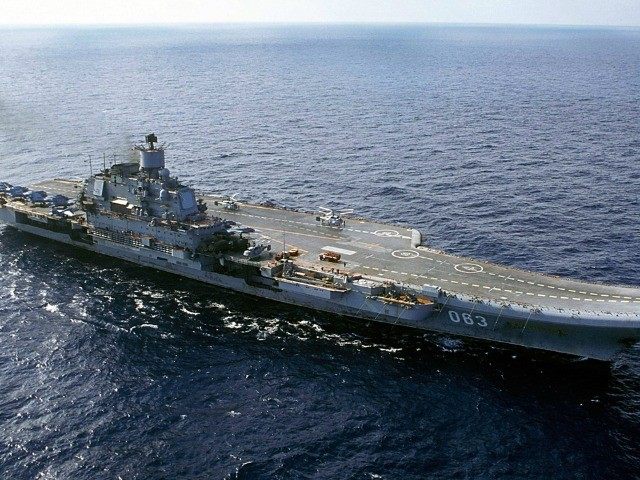Admiral William Gortney, the commander of the North American Aerospace Defense Command, warned the Senate Armed Services Committee that Russia is a threat to America’s safety.
“The past year has marked a notable increase in military assertiveness on the world stage, including in the approaches to the homelands,” he told the committee.
Russian heavy bombers flew more out-of-area patrols in 2014 than in any year since the Cold War. We have also witnessed improved interoperability between Russian long-range aviation and other elements of the Russian military, including air and maritime intelligence collection platforms positioned to monitor NORAD responses. While these patrols serve a training function for Russian air crews, some are clearly intended to underscore Moscow’s global reach and communicate its displeasure with Western policies, particularly with regard to Ukraine.
The majority of interceptions took place near Russian borders over the Baltics. By November, NATO intercepted the Russian military over 100 times, three times more than 2013. Portugal, a member of the European Union and a founding member of NATO, chased a Russian ship out of its waters on November 6, 2014. Russia claims the ship conducted “marine research,” but Portugal intervened when the ship floated almost fourteen miles from the coast.
Russian warships appeared in the English Channel on November 28, 2014. Russian media outlet RIA claimed the fleet “passed through the Strait of Dover” and entered “international waters in the Seine Bay to wait for a storm to pass.” The Northern Fleet claimed the crew participated in exercises, but NATO denied any exercises took place.
“Russia is progressing toward its goal of deploying long-range, conventionally-armed cruise missiles with ever increasing stand-off launch distances on its heavy bombers, submarines and surface combatants, augmenting the Kremlin’s toolkit of flexible deterrent options short of the nuclear threshold,” he continued. “Should these trends continue, over time NORAD will face increased risk in our ability to defend North America against Russian air, maritime, and cruise missile threats.”
Two United Kingdom Royal Air Force jets intercepted two Russian bombers over the English Channel in January. The bombers are capable of carrying nuclear weapons. In February, the warships returned to the Channel. The HMS Argyll “intercepted a Russian frigate” “equipped with anti-ship missiles, the Kashtan anti-aircraft system and torpedoes.”
The United States is also concerned over Russia’s request to Vietnam to use Cam Ranh Bay airfield, “a US base during the Vietnam War and then a Soviet naval base until 2002.” The administration asked Vietnam to deny Russia’s request to use the base to refuel aircraft. The Russian Foreign Ministry claims the air force’s activities comply “with international norms and bilateral agreements.”
“Under President Putin, however, we have seen a clear return to Cold War tactics,” Marine Corps General John Kelly, head of US Southern Command, told the Senate committee.

COMMENTS
Please let us know if you're having issues with commenting.